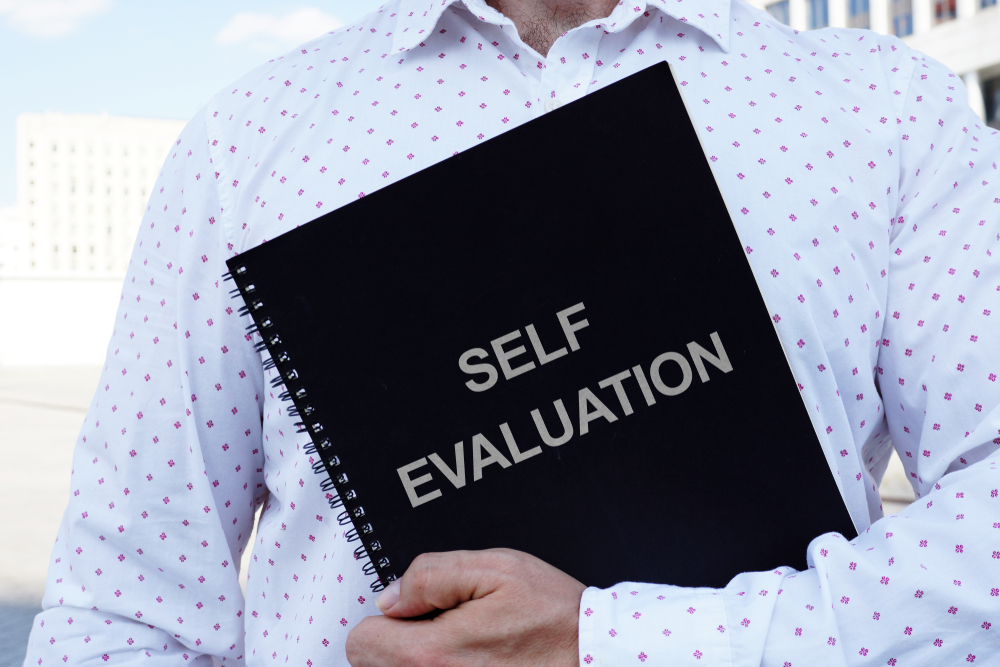
Get Paid to Share Your Expertise
Help shape the future of business through market research studies.
See Research StudiesA self-evaluation is an important part of quarterly and annual performance reviews.
After all, they can raise recognition and color your chances of a promotion or raise. They also help to keep you readily aware of your role and the responsibilities that come and change with it. But evaluating yourself, devoid of bias, isn’t necessarily an easy task.
We all want to believe certain things to be true of ourselves, even if they’re not quite entirely accurate.
On the other hand, we tend to be our own harshest critics. Both of these extremities can make unbiased self-evaluations tough to tackle.
There are, however, steps you can take to reduce bias in your self-evaluation and, ultimately, make the review process less painful.
5 ways to reduce the bias in your self-evaluation
Here are five top techniques for reflecting on who you are, what you’ve accomplished, and what you wish to achieve, as well as for unpacking your strengths and weaknesses, all more objectively.
1. Document your work all along the way.
When you keep written tabs of your work along the way, you’ll have an easier time referring to hard facts and detailed data when you need it to make a case in a self-evaluation. Setting this cadence from the start can get you into a regular routine of checking in, which also means that you are less likely to have surprises come review time.
Documenting your work along the way might look like reporting on data, getting written confirmation of important conversations, or updating your job description as you try on new or different hats. The point is that you want to have access to proof when you need it later, and you don’t want to have to go ransacking your memory for answers to review questions about your role or responsibilities.
2. Get specific on the details.
Kick off each quarter or designated review period with specifics like your objectives and key results (OKRs). This should be a goal-setting framework on which everyone aligns—you and anyone else evaluating your work. Defining measurable goals, as well as tracking their progress, can help you to be impartial when it comes to assessing results. After all, metrics don’t lie.
You should also be specific on the details in your actual self-evaluation. For example, if you’re asked whether or not you think you tried your best to solve a certain problem to no avail, you can reference specific solutions you attempted or emails you sent asking for help. If asked about whether or not you made the best use of the tools at your disposal, you can reference those particular tools and their use cases. Similarly, if a question crops up about how you helped bring a goal to fruition, you can speak specifically about where and how your solutions were implemented.
3. Note tangible wins you can back up with data.
When asked about your greatest accomplishments, refer back to the tangible wins you’ve been tracking throughout the period in review. Talking about measurable wins, especially wins that can be compared to benchmark measurements, is one surefire way to keep objective.
For example, if you’re asked about your proudest accomplishment, you can share an impressive metric that your work directly drove or influenced in some way. If asked about challenges you overcame, you can cite specific asks, note any distinct difficulties with it, and reference any facts and figures that prove your success nonetheless.
4. Consider areas for improvement with hard facts.
We all have room for improvement. But instead of being hard on yourself about those inevitable weaknesses, consider the unaccomplished goals that you set out at the start of the period in review. Because you’ve written OKRs down at the beginning, you can fairly admit if or when some goals haven’t been met.
Plus, because you also have documentation of the progress of those goals, rather than harping on what you haven’t done, you can reference blockers that prevented the completion of these goals—as well as what you need to do or the resources you require to complete them going forward.
5. Keep a record of your reviews.
Setting yourself up for success starts with creating goals for yourself—which is why self-evaluations typically ask you about your job satisfaction and personal career goals. When evaluating yourself this time, try to set realistic expectations for the next time. These expectations should be rooted in logic, not emotion.
Look at factors like the time and resources you have on hand—and how they helped (or didn’t help) you during the last review period—to be more sensible in setting goals. Is there anything that would have helped you accomplish those goals the last time around that you can call out this time around? If so, now is the time to speak up about these specifics. And keeping copies of your performance reviews to reference in future ones can help you track the progress of those goals, too.
Keep your eyes peeled for more techniques to sound confident in self-evaluations, ace your performance reviews, and get through it all. At Ivy Exec, we’ve got your back every step of the way.

 AnnaMarie Houlis
AnnaMarie Houlis